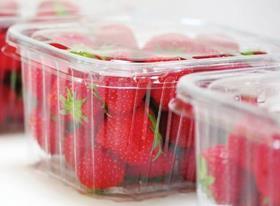
As scrutiny rises on plastics use, new research has revealed that over half (54 per cent) of the UK’s small retailers have seen sales of plastic packaged goods fall over the last six months.
The study by Paymentsense, which delivers payment solutions to 60,000 small businesses across Europe, showed that sales of fruit and vegetables wrapped in plastic were hardest hit, with 44 per cent of small retailers reporting that sales had fallen.
Fresh produce was closely followed by fruit juice in plastic bottles, which was highlighted as down by 43 per cent, and water in plastic bottles, which was mentioned 39 per cent of those surveyed.
The research also underlines how shoppers purchasing habits are evolving, in light of months of mainstream media attention on the subject.Almost half (49 per cent) of the small retailers surveyed said the number of customers requesting products without packaging has increased over the last six months.
Meanwhile, over a third (36 per cent) reported that consumers are now buying more unwrapped goods and using their own bags or containers to transport them, with nearly a quarter (23 per cent) saying they had seen growth in customers requesting products with plastic-free packaging.
The trend is having an impact on revenues, with small retailers noticing an associated drop in takings of 3.6 per cent, on average.
In response to these shifting consumer priorities, and as the zero-waste movement gains traction, many small retailers are already making changes.Some 41 per cent said they have started stocking unpacked or loose goods as well as introduced new lines with plastic-free packaging in the last six months; 30 per cent are also now recycling more; and exactly a quarter are no longer selling drinks with built-in plastic straws.
Guy Moreve, chief marketing officer at Paymentsense, said: “Our study shows how changing consumer behaviour is starting to have an impact on the UK’s small retailers... Movements like the UK Plastics Pact are really gaining traction, as businesses and industry work towards a more circular approach to protect the environment.”
The survey, which was conducted in July 2018, involved 291 small UK retail businesses.






No comments yet